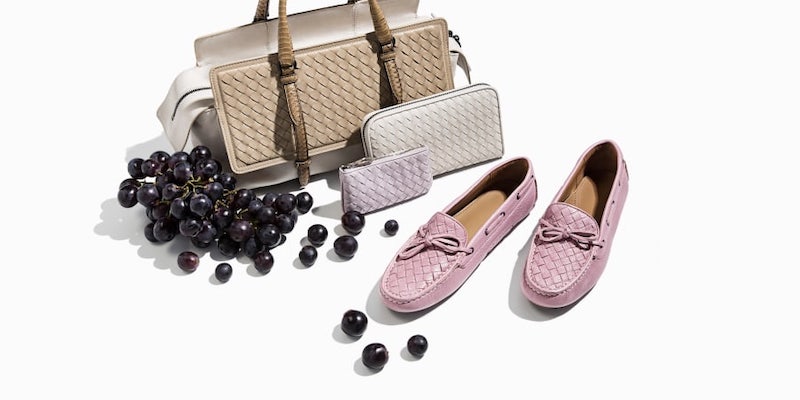NEW YORK, May 3 — We know that fruits and vegetables are good for our health, but they could also be beneficial for the fashion industry. For several months now, they have been emerging as key alternatives to animal-based, polluting materials such as leather. This is the case of grapes, the new darling of brands, who are using it to design sneakers and handbags. An innovation.
After apples, mushrooms, and even spider webs, it’s time to make way for a new sustainable, ethical, and vegan alternative to traditional textiles: Grapes. If you normally savour grapes or in the form of a beverage, you should know that in the (very) near future it will likely be a part of accessorising your outfits, whether casual or sophisticated. Bags and shoes made of grape ‘leather,’ more ethical and less harmful for the environment, are no longer a utopian fantasy.
However, let’s be more precise, and talk about grape-based materials because it is not leather per se, as France’s National Leather Council (CNC) has pointed out several times, indicating that many emerging materials are called, wrongly, ‘leather’, because they are visually similar. But, they noted in March, the term ‘leather’ refers to a material with specific properties and qualities and should therefore be reserved for the sole name of the leather material resulting from the transformation by tanning of the skin of an animal.
These vegan materials made from grapes are increasingly being used by the fashion industry to limit its impact on the planet. But how are they developed? Italian company VEGEA, a specialist in the field, has joined forces with winegrowing estates to recycle wine waste, from the marc of grapes to seeds and skins. Everything that is not used in the production of wine is recovered, then transformed and made available to the fashion industry.
Big names are getting on board
In September 2020, in the midst of the pandemic, Le Coq Sportif made headlines by presenting several vegan sneakers in “grape leather.” The products included a classic model and a retro runner, whose design is completed by a cork insole and a rubber outsole. And they have proved to be a hit. A collaboration with VEGEA, this collection sets the tone and shows that the biggest brands are ready to change things up. And even the fast fashion giants are getting in on the act, as H&M has also offered pieces in partnership with the Italian company for its eco-friendly H&M Conscious range.
In other categories, it has also been used by brands like Pangaia (sneakers), Roman Raibaudi (bags), or Maison Peaux Neuves (bags).
It appears that this vegan material has a bright future ahead of it, especially since other sectors, such as decoration and automotive, could quickly get involved. Indeed, Bentley was one of the first to have tried the experiment, also with VEGEA, almost... two years ago. — ETX Studio






















